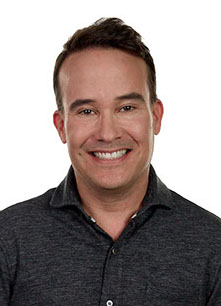
The Border Crossed Us
ABOUT US |
If ever there were a time for American Hispanics to lean hard into Hispanic Heritage Month, it has to be now. We can pretend that the hatred and racism directed at immigrants today, especially Latino immigrants, isn’t our struggle. We can pretend that their journey isn’t an echo of the same one our own forebears took. Or, joyful but not overtaken by our differences, we can lock arms and stand together, heads high.
Some of us are newcomers; others have been around for a while. My own heritage is a balance of old and new. My  mom’s father was an undocumented railroad worker from Zacatecas, Mexico, who ate orange peels thrown out the windows of northbound trains as he followed the tracks northward in 1910. My dad’s dad came from a family who lived in northern New Mexico for centuries. He loved to say, “I didn’t cross no border -- the border crossed me!”
mom’s father was an undocumented railroad worker from Zacatecas, Mexico, who ate orange peels thrown out the windows of northbound trains as he followed the tracks northward in 1910. My dad’s dad came from a family who lived in northern New Mexico for centuries. He loved to say, “I didn’t cross no border -- the border crossed me!”
Intrigued by our family story and determined to get to the bottom of it, my brother commissioned an exhaustive genealogical study, which revealed that my dad’s dad was the direct descendant of a Jew who was expelled from Spain in 1492 during the Inquisition.
Hispanic Heritage is long and rich, frequently surprising, occasionally fraught. While there’s nothing wrong with teasing each other a little as we sometimes like to do – Cubans are too uptight, Puerto Ricans talk too fast, Mexicans talk too slow – it’s important to remember the values we share, particularly at a time when too many immigrants, especially Latino immigrants, are being villainized on the national stage. Our ancestors risked everything to come to America, fueled by the conviction that they could transform their circumstances through a commitment to God, family and hard work. This, more than anything else, is the tie that binds us together.
I knew I was Hispanic because my mom would never let me and my brothers and sisters forget it. But when I was a boy, my heritage didn’t seem as straightforward as a claim to being African American or Asian or White. I grew up in Albuquerque, and I remember being baffled by the complicated set intersections that define New Mexico’s demography. Among US states, New Mexico boasts the highest percentage of Hispanics, a whopping 56 percent. Native American Indians comprise 14 percent of the population while Asians and Blacks together amount to 4 percent. The remaining 26 percent are what demographers refer to as “Non-Hispanic Whites.”
It raised the question, at least in my logic-chopping brain, as to whether there was such a thing as “Hispanic Whites.” Growing up, my oldest brother’s skin was darker than mine, and two other siblings were fair, blond-haired and blue-eyed. I was somewhere in between.
“Are Hispanics white?” I asked my mom one day.
“Absolutely not!” she said. “You’re Mexican, Spanish, and Indian – NOT Anglo.”
“Do some Hispanics consider themselves white?”
“Only Hispanics who aren’t proud of their heritage – ugh!”
I thought about one of the boys in my class with a Spanish surname. He wore Armani to school and ran with all of the rich white kids, who accepted him as one of their own. I offered that white folks consider at least certain Hispanics to be white.
“Ay Dios mío, Tommy!” she said. “Only idiotas think Hispanics are white.”
For my mom, examining these questions was like debating a matter of religious teaching or the fates of her favorite telenovela characters. I wasn’t going to win.
One day after lunch in fifth grade, my best friend and I got to talking about our families. His dad was Irish from Boston, and his Mom was a native New Mexican Hispanic. (Many years later, his fraternity brothers would christen him “McMex.”) I explained to my friend, following my mom’s instructions, that I was one-half Mexican from my dad’s side, a quarter Aztec Indian and a quarter Spanish on my mom’s side. He looked at me quizzically.
“Uh… okay, but you know, that’s like the definition of Mexican, right?” It was a conundrum wrapped in an enigma wrapped in a piece of chorizo. I’ve cut short the podcast ever since and simply told people I’m Mexican.
Whatever you call yourself – Hispanic, LatinX, Latino, Mexican, Cuban, Puerto Rican, Dominican, half-Mexican-quarter-Indian-quarter-Spanish – and whenever your family arrived, this month is an opportunity to celebrate your identity, what you look and sound like, but also to appreciate the commonalities we LatinX’s share. They go way beyond borders, skin color, and nomenclature.
As we ring in another Hispanic Heritage Month, my grandfather’s “I didn’t cross no border -- the border crossed me!” quote resonates more deeply than ever. The American Dream has always been about rethinking lines of demarcation and stretching the boundaries of what’s possible.
Remember the mother, grandfather or great-grandmother in your family who risked everything to pursue the American Dream, and reflect on the straight line between their struggle and the struggle of the Latino immigrants risking everything to pursue their own version of the American Dream today.
When you do that, you’ll soon realize that fear-mongering and racism isn’t directed at an abstract group of ‘other Latinos.’ It’s happening to you. Shoulder to shoulder, we can stand and be counted, a single, unignorable force upholding what made America great centuries ago at its founding, and what makes it worth reaching and fighting for today.
Tom Chavez